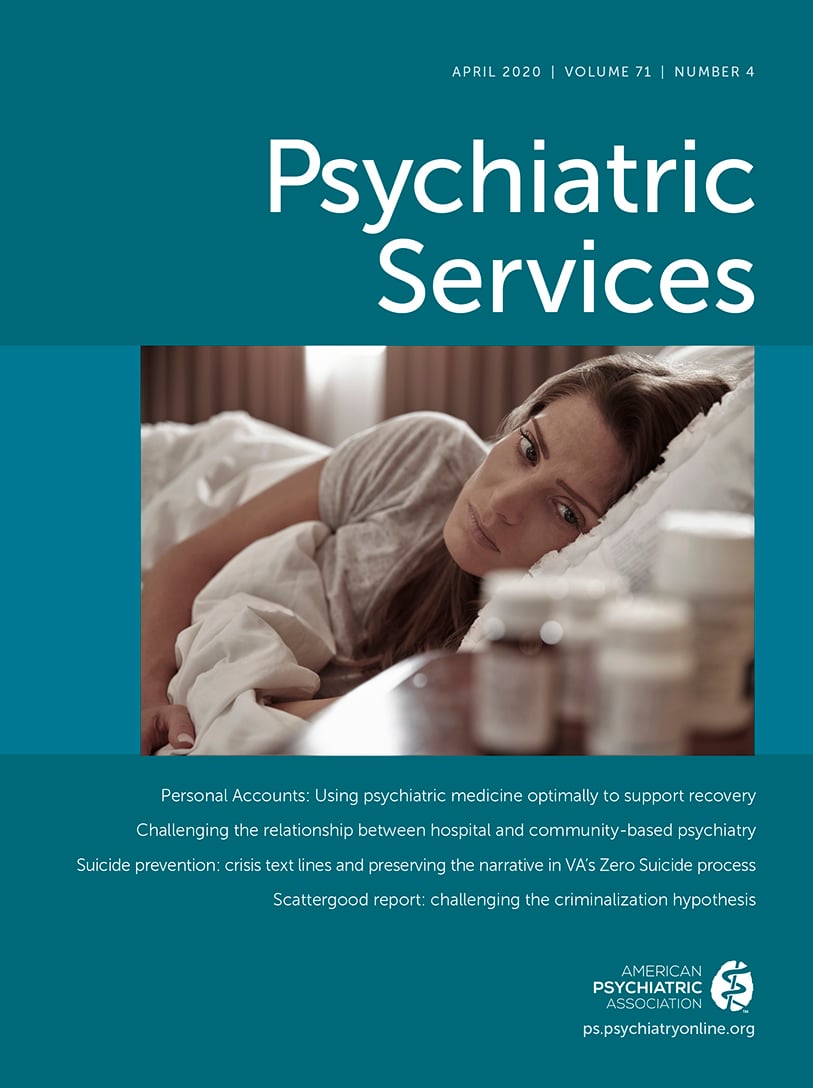Discharge planning is recognized as an essential component of psychiatric care. Patients released from inpatient facilities can reasonably expect to be given prescriptions for needed medications (or the medications themselves) and a referral to a mental health professional who can provide follow-up care. Do the same expectations apply to correctional facilities, which today house so many people with serious mental illnesses? If they do, what remedies do people released from those facilities have when discharge planning does not occur? An important recent decision by the federal Second Circuit Court of Appeals addresses these questions and in doing so likely establishes legally enforceable standards for correctional mental health care.
The Case of Michelet Charles
Michelet Charles was a 56-year-old man who, after 34 years of lawful residence in the United States, was arrested in July 2014 on immigration-related charges by agents of the Immigration and Customs Enforcement (ICE) agency (
1). He had a 30-year history of a psychotic illness that had been diagnosed as either bipolar disorder or schizoaffective disorder and successfully managed with medication. After his arrest, he was brought to the Orange County Detention Center, a county jail about 60 miles north of New York City. Orange County had a contract with ICE to hold detainees in its jail, pending their court proceedings. While at the facility, Mr. Charles received his medication regularly and had psychiatric appointments every 3 weeks, remaining stable during that time.
After a year in detention, Mr. Charles was brought to Manhattan for a hearing in Immigration Court, at which he won his freedom. He was discharged directly from the court to the street, with his identification but none of his other belongings. Neither his medications nor a referral for follow-up treatment was provided. No prescriptions had been called into a pharmacy for him, nor was he given a discharge summary or any other indication of the nature of his treatment while at the facility. Indeed, he was not even fully aware of which medications he had been receiving or at what dosages. So the following day, Mr. Charles and his daughter drove 65 miles back to the Detention Center to obtain his medications. When they arrived, however, they were told that it was the policy of the jail not to provide medications once a person is released. His attorney’s efforts to contact ICE to obtain the medication received no response. Moreover, his Medicaid coverage had lapsed while he was in custody, a common problem for detainees of all sorts, limiting his access to community care.
Shortly after his release, without his medications, Mr. Charles began experiencing symptoms of psychosis. According to the complaint in the case, “he exhibited bizarre behavior, and was disorganized and mumbled when he spoke. His family reports that he was manic, anxious, and paranoid” (
2). Thirteen days after release, Mr. Charles was so psychotic that his family called 911 to have him transported to an emergency room, from which he was hospitalized. Two months of hospitalization were required for him to return to baseline. In July 2016, a year after his abrupt release from the detention facility, Mr. Charles and another ICE detainee with a similar story brought suit in federal court against Orange County, a number of its agencies, and several individuals at the facility, alleging that the failure to put a discharge plan in place for their care deprived them of their constitutional rights.
Discharge Planning in Correctional Facilities
Discharge planning is an acknowledged component of mental health treatment in jails and prisons. The American Psychiatric Association’s (APA’s)
Psychiatric Services in Jails and Prisons (
3) notes that “timely and effective mental health discharge planning is essential to continuity of care and an integral part of adequate mental health treatment.” APA has indicated that essential elements of discharge planning include arranging follow-up appointments for inmates with serious mental illnesses, transferring the records of their treatment to the referral entity, and arranging to have prescriptions renewed or reevaluated (
3). Similarly, the American Medical Association has declared that “correctional and detention facilities should provide medical, psychiatric, and substance misuse care that meets prevailing community standards, including appropriate referrals for ongoing care upon release from the correctional facility in order to prevent recidivism” (
4).
With regard to provision of medications, the American Public Health Association’s
Standards for Health Services in Correctional Institutions (
5) specifies, “Prisoners discharged from custody must be given a supply of essential medications that is sufficient for at least two weeks or until they may reasonably be expected to obtain necessary community-based follow-up care.” Indeed, the Orange County facility was accredited by the National Commission on Correctional Health Care, which describes discharge planning as including provision of sufficient medications to ensure continuity of care following release (
6). Perhaps most tellingly, ICE’s own standards for people held in detention state, “Detainees shall receive continuity of care from time of admission to time of transfer, release or removal. Detainees, who have received medical care, released from custody or removed shall receive a discharge plan, a summary of medical records, any medically necessary medication and referrals to community-based providers as medically-appropriate” (
7).
That Orange County failed to comply with these generally accepted standards of care seemed clear from the allegations in the case. However, the legal question with which the courts needed to grapple was whether this failure amounted to a deprivation of constitutional rights. At least initially, the outcome of that claim was less clear.
Discharge Planning as a Constitutional Right
The claims of Mr. Charles and his coplaintiff, Carol Small, were brought in federal district court in Manhattan. Their suit relied on Section 1983 of the Civil Rights Act, which affords remedies to persons deprived of their U.S. constitutional rights under color of state law. They specifically alleged infringement of their due process rights under the 14th Amendment to the Constitution. Defendants moved to have the case dismissed on the grounds that no legally recognizable right had been violated. That motion was considered by the district court.
In general, federal and state governments (counties are considered agents of the states) do not owe affirmative obligations to any person. The government may provide benefits, of course, elementary and secondary education being a good example, but absent a decision to do so, citizens cannot claim an entitlement to such services. However, there are a small number of exceptions to that rule, one of which is when the government has a “special relationship” with a person. One recognized situation creating such a special relationship is when the state holds a person in involuntary custody (
8). Because such persons cannot seek medical treatment on their own, the government is obliged to provide such services when they are medically necessary. Indeed, the U.S. Supreme Court has held that purposeful failure to do so—what it termed “deliberate indifference” to a prisoner’s needs—constituted a violation of the 8th Amendment prohibiting cruel and unusual punishment (
9).
As ICE detainees, Mr. Charles and Ms. Small were technically being held under civil law, and hence they were not entitled to the protections of the 8th Amendment. Therefore, their claims were pleaded under the 14th Amendment due process clause. But given that involuntary detention, rather than a specific legal status, is the touchstone for the analysis of state duties, their claims were analyzed in the same way as if they had been criminal defendants or convicted prisoners. The first question that the district court considered was whether the fact that discharge planning concerned events that would take place after release from custody precluded finding a duty on the part of the state. At least in theory, previously detained persons would be free to seek care on their own at that point. For the purpose of its analysis, though, the court was willing to assume that a limited duty existed beyond the termination of incarceration (
10).
However, the state’s failure to fulfill a duty does not rise to the level of a federal constitutional violation on its own. If that were not the case, every claim of medical malpractice that was brought by a detained person would effectively be alleging a constitutional violation. Rather, as the district court noted, a plaintiff must show that the agents of the state manifested deliberate indifference to the plaintiff’s needs—that is, that they knew or should have known that they had a duty to the plaintiff and deliberately or recklessly failed to fulfill that duty. Moreover, the violation must be so egregious as to “shock the conscience” before it will be held to be a constitutional violation. The district court concluded that, notwithstanding the clear violation of existing standards in the case, “from an objective standpoint, the temporary deprivation was not sufficiently harmful to establish a constitutional violation.” Mr. Charles’ claim was dismissed.
Vindicating the Claim
The plaintiffs appealed dismissal of the case to the federal Second Circuit Court of Appeals, contending that the district court had misconstrued the relevant standard because it considered discharge planning as part of a limited duty to provide medical care after release from custody. In contrast, citing the brief filed by the APA on behalf of itself and six other national organizations, the Second Circuit’s three-judge panel held, in May 2019, that discharge planning is a duty that arises during the period of incarceration. “If discharge planning is to occur at all, it must, by definition, occur prior to release from custody.” The court noted that such expectations reflect the ordinary course of medical care: “Doctors routinely provide their patients with instructions on how to treat their illnesses after they leave the doctor’s office, provide their patients with referrals to other healthcare providers when necessary, and refill their patients’ prescriptions so as to avoid a lapse in care.”
The importance of that distinction is that the state has stronger obligations to provide medically necessary care during incarceration. Moreover, the court held, so long as deliberate indifference to affording such care is established, there is no need to find that the failure “shocked the conscience” (although that may be required where the claims involve something other than medical care). Thus the only two issues to be determined are whether the plaintiffs’ claims involved serious medical needs and whether the defendants could be shown to have been deliberately indifferent to those needs. The court concluded that the mental health treatment issues at stake were plausibly serious and that the defendants were or should have been aware of the standards requiring them to perform adequate discharge planning.
Because the case came before the Second Circuit on review of a motion to dismiss, the court had only to ascertain that the plaintiffs’ claims, if true, were adequate to make a plausible case for deprivation of their constitutional rights. The case was remanded to the district court for further proceedings that would allow development of the factual record and move the case toward settlement or trial.
The Implications of Charles v. Orange County
The Second Circuit’s opinion in
Charles v. Orange County is not the first case to recognize a duty for the state to provide some degree of continuity of care for discharged detainees. In 1999, the Ninth Circuit held that the state had a duty to provide a supply of medication “sufficient to ensure that [the released prisoner] has that medication available during the period of time reasonably necessary to permit him to consult a doctor and obtain a new supply.” (
11) But
Charles is the clearest statement to date of a broader state duty, based on the federal Constitution, to conduct adequate discharge planning before release from a correctional facility. Therefore, it is likely to provoke further litigation on behalf of the rights of people in detention and, perhaps more positively, proactive efforts by the states to come into compliance with generally accepted standards so as to avoid having to confront allegations of a failure to do so in federal court.

